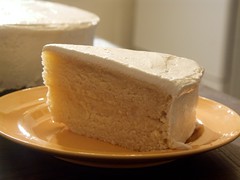Last week we talked with Jon Underwood, the founder of Death Cafe. Based on the sociological studies of the Swiss Bernard Crettaz, the goal of Death Cafe is to create a safe environment where people can engage in conversation about death and dying. What first started in Jon’s basement has grown to encompass several locations in several countries. This is Part II of our interview.
Katie: Tell us how you became involved with Death Cafes? What would you call yourself – an ambassador?
Jon: I already wanted to do a project around talking about death when Alistair Reid, my
stepfather, gave me the article about Café Mortels in November 2010. I knew immediately that the work of Bernard Crettaz was a good fit with my plans. I already had a ‘death blog’ and then changed the name of [it] to Death Café. Our first Death Café took place 10 months later in September 2011 and was facilitated by Sue Barsky Reid. After we had done 7 I wrote the guide to running your own Death Café and put it on our site.
In April 2012 I was contacted by Lizzy Miles, who became the first person to use the model and to run a Death Café in the US. As more people got in contact and I learned from experience I developed our principles and properly established our social franchise model. I now manage the website, support the facilitators, manage the social media and deal with enquiries and press (around 100 emails a week). I also play the main development role for Death Café. This is all unpaid work!
Based on the need for clarity of roles, and because Death Café and it’s model are new creations, I now say that I am the Founder of Death Café, based on the work of Bernard Crettaz.
Katie: Where would someone find all the Death Cafe locations to attend in the US?
Jon: At the moment, on our forthcoming Death Cafes page: www.deathcafe.com
Katie: Can anyone have a Death Cafe?
Jon: Yes. They need to sign up to our ‘working with us’ document I have attached. The facilitators also need to be able to:
– Feel comfortable talking about death and dying
– Effectively facilitate a group
– Manage any difficult situations (as individual Death Cafes are responsible for their own health and safety)
Katie: Are they always held in a cafe?
Jon: No. The format is very flexible and can be offered in anywhere comfortable and (ideally) fairly quiet. We have offered them in people’s homes, cafes, cemeteries, hospices, festivals, community spaces and even a yurt! We always offer tea and cake – this is very important – and so having them in a café is convenient in this respect.
Katie: Are there any rules on how a Cafe should be conducted?
Jon: It should be a group directed, respectful and confidential discussion about death and dying with a facilitator and tea and cake. That’s pretty much it!
Katie: Are Death Cafe’s a one-time event at each location?
Jon: Sometimes they are regular meetings e.g. first Thursday of each month. There is certainly the scope for development of our model into training, courses, regular sessions over a period of time, etc., but this would need to happen very carefully and rigorously. At the moment we’re very much focused on our core model of a one-off discussion. The next development will be a trial of online Death Cafes.
“It should be a group directed, respectful and confidential discussion about death and dying with a facilitator and tea and cake. That’s pretty much it!”
Katie: How do you see Death Cafes impacting the conversation on death opening to change this taboo?
Jon: It’s got to help! I like to think that Death Café is a step in the right direction in terms of enagaging people in a conversation about death and dying. It is very much our aim to meet people where they are, rather than tell them they need to do x, y or z. I think this makes us more accessible.
Katie: What would you like to tell our SevenPonds readers?
Jon: Death Café at present relies on a large amount of voluntary work, primarily from me but also from others. We are growing quickly [which becomes] unsustainable without funding. If you have any suggestions about organizations or individuals who might want to support this work please do get in touch.
Read Part I of this interview here.
Related Articles:
- ‘Death cafes’ normalize a difficult, not morbid, topic (religionnews.com)
- Talking About Death and Releasing Fear – Ram Dass explains how talking about death can help release our fear of dying (sevenponds.com)

 What is a Death Cafe? An Interview with Jon Underwood, Part II
What is a Death Cafe? An Interview with Jon Underwood, Part II




 “In Case You Don’t Live Forever” by Ben Platt
“In Case You Don’t Live Forever” by Ben Platt
 Our Monthly Tip: Make an “In Case of Death” File to Ease Loved One’s Grief
Our Monthly Tip: Make an “In Case of Death” File to Ease Loved One’s Grief
 Passing of Beloved Comedian Births a New Comedy Festival
Passing of Beloved Comedian Births a New Comedy Festival















I would like to start a Death Cafe could you tell me how or where to get started. i am a pastor
and well-versed in grieving, death, dying, bereaving, and morning.
what do I need to do first?
Report this comment
I need info how can I get it
Report this comment